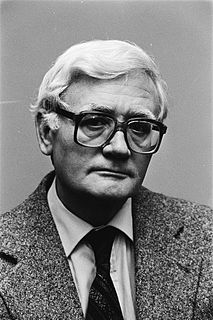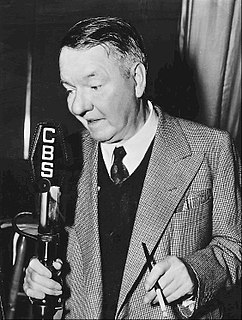A Quote by Thomas Paine
I do not believe in the creed professed by any church that I know of. Each of these churches accuse the other of unbelief; and for my part, I disbelieve them all.
Related Quotes
Each of those churches shows certain books, which they call revelation, or the Word of God. The Jews say that their Word of God was given by God to Moses face to face; the Christians say, that their Word of God came by divine inspiration; and the Turks say, that their Word of God (the Koran) was brought by an angel from heaven. Each of those churches accuses the other of unbelief; and, for my own part, I disbelieve them all.
What James Madison and the other men of his generation had in mind when they wrote the First Amendment was that there should be no official relationship of any character between government and any church or many churches, and no levying of taxes for the support of any church, or many churches, or all churches, or any institution conducted by any of them.
I believe in absolute freedom of conscience for all men and equality of all churches, all sects and all beliefs before the law as a matter of right and not as a matter of favor. I believe in the absolute separation of church and state and in the strict enforcement of the Constitution that Congress shall make no law respecting an establishment of religion or prohibiting the free exercise thereof I believe that no tribunal of any church has any power to make any decree of any force in the law of the land, other than to establish the status of its own communicants within its own church.
The crucified but risen Jesus appears in the believing, assembled community of the church. That this sense of the risen, living Jesus has faded in many [churches] can be basically blamed on the fact that our churches are insufficiently 'communities' of God. Where the church of Jesus Christ lives, and lives a liberating life in the footsteps of Jesus, the resurrection faith undergoes no crisis. On the other hand, it is better not to believe in God than to believe in a God who minimizes human beings, holds them under and oppresses them, with a view to a better world to come.
We believe in taking down the barriers, but we also believe in the most energetic reconciliation among peoples by getting them to know each other, talk each other's languages, understand each other's fears and beliefs, getting to know each other physically, philosophically and spiritually. It is much harder to kill your near neighbor than the thousands of unknown and hostile aliens at the other end of a nuclear missile. We have to create a world in which there are no unknown, hostile aliens at the other end of any missiles...
People are always talking about the first church. The real first church was that gaggle of people who followed Jesus around. We don't know anything about them. But he apparently didn't ask them what creed they subscribed to, or what their sexual preference was, or any of that. He fed them. He healed them. He forgave them. He is clear about sin, but he was also for forgiveness.
It is scripture alone, not conservative Evangelical tradition or any other human authority, that must function as the normative authority for the definition of what we should believe. The authority of the scripture means that all the words in scripture are God's words in such a way that to disbelieve or disobey any word of scripture is to disbelieve or disobey God.
If churches saw their mission in the same way, there is no telling what might happen. What if people were invited to come tell what they already know of God instead of to learn what they are supposed to believe? What if they were blessed for what they are doing in the world instead of chastened for not doing more at church? What if church felt more like a way station than a destination? What if the church’s job were to move people out the door instead of trying to keep them in, by convincing them that God needed them more in the world than in the church?
The Unitarian Church has done more than any other church to substitute character for creed, and to say that a man should be judged by his spirit; by the climate of his heart; by the autumn of his generosity; by the spring of his hope; that he should be judged by what he does; by the influence that he exerts, rather than by the mythology he may believe.
The Church was resolved to have a New Testament, and as, after the lapse of more than three hundred years, no handwriting could be proved or disproved, the Church, which like former impostors had then gotten possession of the State, had everything its own way. It invented creeds, such as that called the Apostle's Creed, the Nicean Creed, the Athanasian Creed, and out of the loads of rubbish that were presented it voted four to be Gospels, and others to be Epistles, as we now find them arranged.
I have noticed that whenever a person gives up his belief in the Word of God because it requires that he should believe a good deal, his unbelief requires him to believe a great deal more. If there be any difficulties in the faith of Christ, they are not one-tenth as great as the absurdities in any system of unbelief which seeks to take its place.
I've always been interested in miracles, or the miraculous of the unexplained. I don't scoff at what makes people believe or want to believe. I think I understand the tremendous attraction of the mysteries of the church to the same degree that I understand and appreciate the frustration people feel, especially believers, with the human rule-making arm of the church, with the not-miraculous part of the church - any church.


































